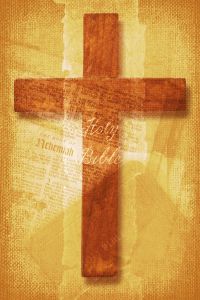 Dec. 17th Beginning of the O Antiphons. Lectionary # 194. Genesis
Dec. 17th Beginning of the O Antiphons. Lectionary # 194. Genesis
49:2.8-10. Psalm 72:3-4,7-8,17. Matthew 1:1-17
What's it to you that we read the genealogical account of Jesus descending
from Abraham down to Joseph, the just man and husband of Mary? For many
this birth record is boring and does not make sense to them with all of
these ancient Hebrew names. Consider this, they merited to be in the most
read book in the world, the Bible. Our names will never appear in divinely
written scriptures from two thousand years ago and even further back if we
include the Old Testament. Our genealogy for today is contained within the
books of the Old Testament especially within Genesis. So Matthew, who is
probably a Jewish author is trying to situate the birth within Judaism and
within the Messianic lineage of David. Patriarchs are named, then kings,
women, and some good and some bad persons, but this is the stuff and
reality of humans made in the image and likeness of God. Some have lived
up to that description of what it means to be human; others have not come
close to it since we have sinners amidst the just ones. The genealogy
reflects salvation history which continues and in many respects is the same
as what went on in the lives of those mentioned in the genealogy.
One of the greatest biblical scholars from our own country, Father Raymond
Brown,SS. encouraged preachers and homilists not to leave this birth record
aside. They are to preach on it. When was the last great homily you heard
on it?
Why not start with the five women who are mentioned, that is easier than
going into the names of the men. Each of the women has a story that will
be found in the Old Testment except the last one whose story will unravel
in Matthew and Luke. They are easily located in the Old Testament by
looking at the cross-references to them given in a student's bible. Here
are some of the most colorful narratives in the Old Testament.
Some of the reasons for reading the genealogy are the following:
1) It shows or demonstrates through human births how Jesus is related to us
in all of the things that we possess from birth and that his birth is real
and historical. Jesus stems from the ancestors who are mentioned from
Abraham on and then through the royal lineage of David; each king passes
this on till we reach Jesus who also is from the davidic line and thus has
a legitimate claim to being the messiah. Jesus is a bona fide human born of
a human mother who name is Mary.
2) Matthew's immediate congregation is given a way of looking at the
legitimacy of Jesus in his birth of Mary, a virgin. He is the first to
explicitly speak of the virgin Mary in terms of human generation. He also
mentions the importance of Joseph as the foster-father of the child (you
will see this in carefully reading verse 16). Again the humanity of Jesus
is real and is not as some early Christians falsely taught that Jesus is
merely an appearance, a phantom, a other worldly person who is not real
flesh and blood. This tendency is called Docetism (Appearance).
3) We enter into the mystery of salvation history and the communion of
saints by our realizing the lineage has all of the components of our own
immediate ancestors except for the royalty. God is working through the
limits and weaknesses of human nature. The women show how God breaks
through and justifies them and thus shows us great hope in humankind. It
is good that Matthew did not neglect mentioning them.
4) There may be a symbolic meaning to five women who may represent the
fullness of God's revelation seen in the Pentateuch or Torah (the first
five books of the bible). We know that there is the strong possibility of
a symbol that represents the name of David. DVD in Hebrew is equivalent to
the number fourteen. D=4, V=6, and another D =4, thus fourteen. Matthew
gives us three sets of fourteen with a problem of our finding only thirteen
in the third set. A scholar helps us through this problem: "Various
solutions have been proposed: Is Christ the fourteenth? Or is the
fourteenth place reserved for the coming of the Son of Man? Or does Matthew
imply a generation between the second and third section: Joakim was the
father of Jeconiah. The puzzle remains." (Benedict Viviano, in New Jerome
Biblical Commentary, p.635).
5) The genealogy highlights David, Joseph, and Mary--three persons who help
us during this Advent season and who bring us to the crib. Today as we
sing the first of the O Antiphons let us be thankful for the birth record
of Jesus.
O Wisdom, O holy Word of God, you govern all creation with your strong yet
tender care. Come and show your people the way to salvation. Amen.
About the Author

Guest
We welcome guest contributors who graciously volunteer their writing for our readers. Please support our guest writers by visiting their sites, purchasing their work, and leaving comments to thank them for sharing their gifts here on CatholicMom.com. To inquire about serving as a guest contributor, contact editor@CatholicMom.com.


.png?width=1806&height=731&name=CatholicMom_hcfm_logo1_pos_871c_2728c%20(002).png)
Comments